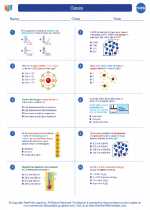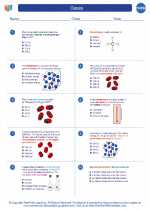Universal Solvent
One of the most important properties of water is its ability to act as a universal solvent. This means that it has the ability to dissolve a wide range of substances. In fact, water is often referred to as the "universal solvent" because it can dissolve more substances than any other liquid.
Key Concepts
- Polarity: Water is a polar molecule, meaning it has a slightly positive and slightly negative end. This allows it to interact with and dissolve other polar or charged substances.
- Hydrogen Bonding: The hydrogen bonds between water molecules make it an effective solvent, as the positive and negative ends of the water molecules can surround and break apart other substances.
- Solute and Solvent: The substance being dissolved is called the solute, and the substance doing the dissolving is called the solvent. In the case of water, it is often the solvent due to its ability to dissolve many different solutes.
Examples of Water as a Universal Solvent
Water's ability to act as a universal solvent can be seen in many everyday examples, such as:
- When sugar or salt dissolves in water to form a solution.
- How water can clean and dissolve substances from surfaces due to its solvent properties.
- The ability of water to transport nutrients and minerals in living organisms due to its ability to dissolve and carry substances.
Effects of Universal Solvent Property
The universal solvent property of water has significant effects on various natural and industrial processes, including:
- Weathering of rocks and minerals due to water's ability to dissolve and transport substances.
- Industrial processes such as dissolving and separating substances in chemical reactions and manufacturing.
- Biological processes within living organisms, where water's solvent properties are essential for digestion, circulation, and overall functioning of cells.
Study Tips
To understand the concept of water as a universal solvent, consider the following study tips:
- Review the concepts of polarity and hydrogen bonding in water molecules.
- Practice identifying solutes and solvents in different solutions.
- Explore real-life examples of water acting as a universal solvent and its implications in various fields.
- Discuss and compare the solvent properties of water with other liquids.
- Engage in experiments or demonstrations to observe water's ability to dissolve different substances.
◂Chemistry Worksheets and Study Guides High School. Gases
The resources above cover the following skills:
Physical Science
Energy - A. Energy is involved in all physical and chemical processes. It is conserved, and can be transformed from one form to another and into work. At the atomic and nuclear levels energy is not continuous but exists in discrete amounts. Energy and mass are related through Einstein's equation E=mc 2 . B. The properties of atomic nuclei are responsible for energy-related phenomena such as radioactivity, fission and fusion. C. Changes in entropy and energy that accompany chemical reactions influence reaction paths. Chemical reactions result in the release or absorption of energy. D. The theory of electromagnetism explains that electricity and magnetism are closely related. Electric charges are the source of electric fields. Moving charges generate magnetic fields. E. Waves are the propagation of a disturbance. They transport energy and momentum but do not transport matter.
Relate temperature to the average molecular kinetic energy.



